Text
A new addition,

Salatburn (2023)
Movies I recommend that I haven't mentioned before in here, where the House is actually the protagonist, or at least the biggest plot device.

Parasite (2019)

Hogar (2020)

Elle (2016)
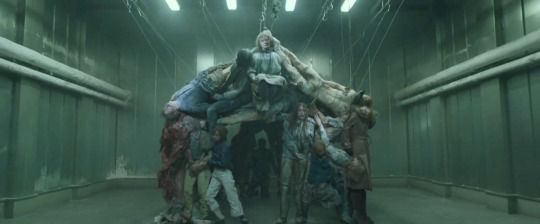
The house that Jack built (2018)
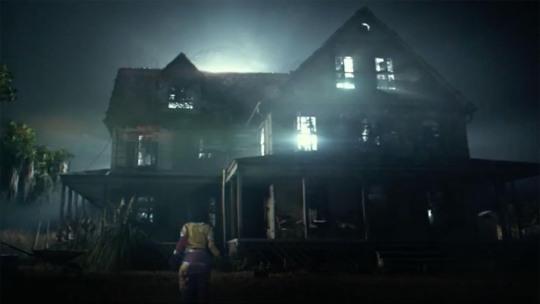
10 Cloverfield Lane (2016)

La migliore offerta (2013)

ハウス / Hausu (1977)
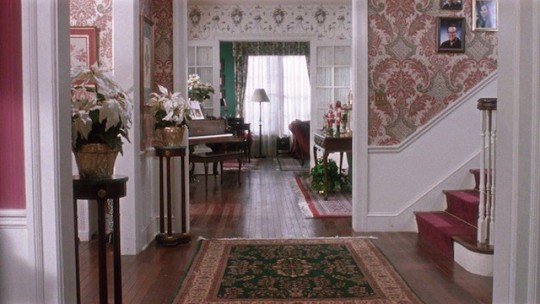
Home Alone (1990)
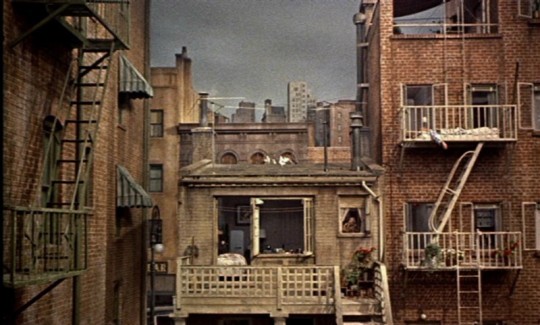
Rear Window (1954)

The Royal Tenenbaums (2001)
192 notes
·
View notes
Text
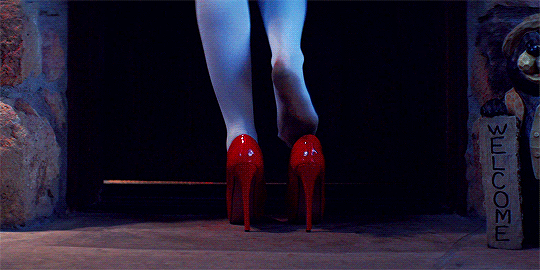
Promising Young Woman (2020)
“Sometimes Gentlemen Are The Worst”
A movie that made me so mad, i had to take deep breaths while watching it, which means it definitely hit all the checkpoints it was supposed to
The symbolism from Catholicism was the cherry on top on a movie that never tries to use trauma as an audience grabber and is always elegant and kind, even at times where it shouldn’t have been
Yes, it brings on a message that should be taken for granted by centuries but we’re in 2021, and I guess we still need these kind of movies for certain people
6 notes
·
View notes
Text
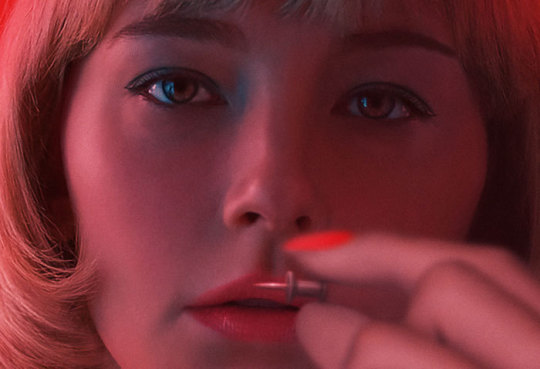

Swallow (2019)
Butt Boy (2019)
These two characters are so complementary that it's actually insane to think they're unrelated, where one's objects finish their iter, the other one's begin (literally)
I'd like to think of these two as different sides of the same need, or as an unconventional couple
One swallows, the other takes it up the bum, and no, I'm not talking about my hidden watching history from p*rnhub.
8 notes
·
View notes
Text

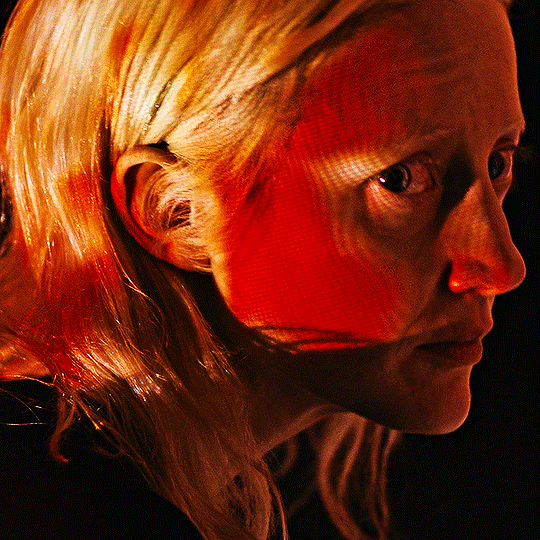


Possessor (2020)
"We met. I guess it wasn't that memorable"
Just like the bodies the protagonist Tasya keeps possessing over, the movie itself feels like the shell of the masterpiece it could have been.
It has good premises and it's definetely a worthy watch, but the eventualities it created and ideas it put out where so many and so good, that i feel like it would have needed at least a mini serie to do them justice.
So many topics were left hanging, from how Tasya studies "the victim" gestures, accents and movements, to the company Colin works for, what they do and all the implications of their job, or even more of how it feels to wake up inside of a different body, especially of the opposite gender, of how different sex feels like, of how a different body, strenght, height is like...
All themes that were barely implied, and maybe that's the beauty of it, but i want to see more. Hope Brandon will keep exploring this wide theme and brilliant idea in his future works too
4 notes
·
View notes
Text
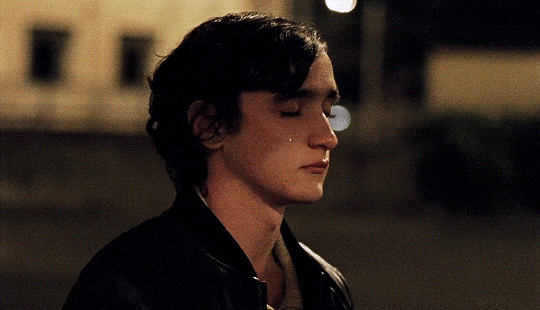
Lazzaro Felice (2018)
Is there a boundary where kindness ends and it becomes plain foolishness? Will being cunning and daring help you more in life than being honest?
This is the biggest dilemma created by the film, and to be honest it still remains an open question
What is sure is that it gave an insane amount of melancholy, Lazzaro's single tear hurt more than thousand words
4 notes
·
View notes
Text
Two very different movies that give me the same exact type of vibe every single time, and i love both immensely because of the sense of longiness and the dreamy aesthetic they bring
Similarities
• Gothic atmosphere
• Vampires
• Young cult actors
• sexual themes
• 19th century centered


• love, hopefulness and blood
• fabolous hair
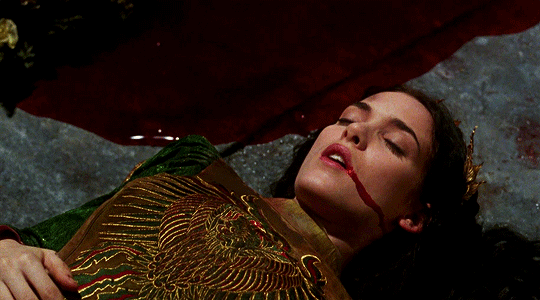
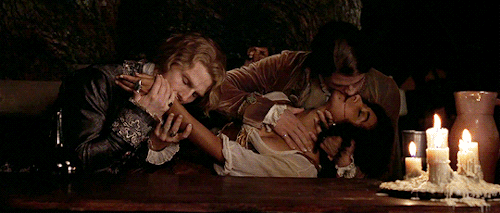
Bram Stoker's Dracula (1992)
Interview with a Vampire (1994)

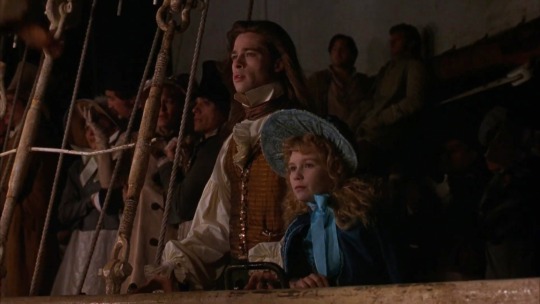


Both at the end are just hypnotic and nostalgic love stories, filled with violence, blood, history, glamour and power, but nevertheless love stories

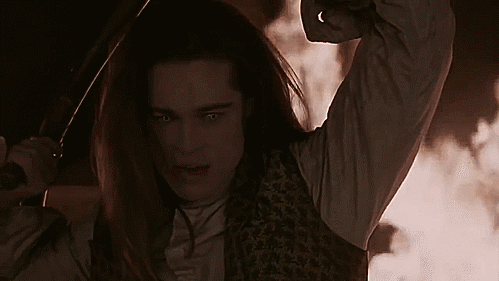
#bram stoker's Dracula#dracula#bram stoker#coppola#francis ford coppola#gary oldman#winona ryder#keanu reeves#brad pitt#tom cruise#interview with a vampire#vampire#vampires#kristen dunst#anthony hopkins#antonio banderas
85 notes
·
View notes
Text
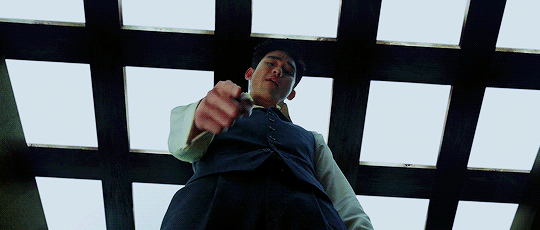
Real (2017)
If you're looking for a movie to watch where you can enjoy Kim SooHyun in his full glory (this is the epitome of his beauty), this is the movie for you
If you're looking for more, meh.
It tries to emulate and mix Noè, Refn, Fincher and Kar-Wai style while missing out on the soul of those directors' masterpieces.
What makes their movies work is not just a perfectly constructed plot, but also that visceral inspiration that you can sense for the whole experience while not making it weird on purpose. While here you know that some details are added to make it look more high quality than it is.
It's not unbearable to watch but it’s a poor example of what it could have been
It’s the ugly lovechild of John Wick, Predestination and Enter The Void
And I'm sad because the idea was actually good, you can see that clearly, but you can feel throughout the whole 2+ hours the constant dilemma between having a peculiar, unique, non linear, complicated and interesting plot and the commercial aspect which cheapens the movie so much in my opinion, like having Soohyun getting undressed by the 7th minute without no apparent reason other than some fangirling for the public (he could have talked about this scars while only showing them later).
Or the two alter egos being recognizable by their sunglasses and chewing gum (so annoying, I wanted to smack that pretty face of his so bad), the Swarovski mask which looks like it belongs in Balmain’s haute couture collection (this is not a compliment). The villain reminded me of the parody of Daft Punk.
The best description of this movie is a smart and attractive guy who just tries TOO HARD to be cool, mysterious and fascinating, so much that he ends up being classified as FAKE by everyone
Also, another thing. I'm a fan of "everything will be explained in the end" kind of movies, but this was too messy and badly executed. It's okay to have a movie where most things are revealed in the end but you cannot NOT REVEAL a single thing, because this means hoping that the viewer will have the patience to watch till the end while knowing 0 of the plot. And even Soohyun's visuals aren't enough to hold the movie together. After a while it becomes irritating other than mysterious
So once again, if you have two hours to spare watch it to make your own opinion, but don't except INCEPTION 2.0, even Tenet couldn't be it
31 notes
·
View notes
Text
Two movies I recommend to you that have more things in common than just the number 13 in their title, but you won't know from me what are those until you watch them both
13 Tzameti (2005)


13 เกมสยอง / 13 Beloved (2006)
These films strongest point is the plot, so I will not say a word more. Good watch.
1 note
·
View note
Text


버닝 / Burning (2018)
"It's too close, you might not see it"
What to say about this movie...
The film itself is quite simple, even too easy at first sighting I'd dare to say, but the meaning behind, the interpretations and smart details is what makes it unique and pretty much a masterpiece.
I'm sure that most people, or at least those who usually watch unchallenging to elaborate movies, won't like it. If you're looking for something what will be "explained to you", for the director to give you that big plot twist or long monologue, you won't find it here. But if you want to watch a work of art that'll make you think, reflect and crash your minds, you have a good journey in front of you.
I remember that as soon as I've finished watching it I went online to look for theories, to see if someone else had the same idea as me, if I got it right and what I've missed, and then I planned to write here my thoughts on the real explaination, but after rewatching and searching I've figured it out BURNING doesn't really have a "true" explaination in my idea, or better, the director definitely knows what he believes is the so called truth, but the strength of it is how free of interpretations it is. I've read hundreds theories and honestly all of them could fit just right, so for once I've decided to do something different.
In here I will summarize all the theories, under layers and explaination that I've read, figured out or found, and I will leave to you, the reader, to believe your own "truth"
This will be full of spoilers, it's actually a summarization of the after watch, so read at your own risk, and since I'm taking for granted that you've watched the movie and remember it quite well too, I won't always repeat the plot when not necessary.
• Ben sells organs on the black market. That's how he gets his money and Haemi is aware of this, and decided to sell her own organs to pay off her debt. She even says I'D SELL MY ORGANS IF I WERE YOUNGER. She could also be unaware of this and that's why she dissapears.
• Ben is a serial killer. He seduces fragile women who are very easy preys to such an handsome and carismactic young man, and then gets rid of them after he gets tired. This happens about every couple of months, which corresponds to his journey in Africa timeline. They are the greenhouses he burns, because he knows nobody will look for them, and in fact the police does not care about the greenhouses, just like they don't care about missing women nobody knows about.
Ben also owns all the qualities of a maniac sociopath who's keen on control and feels no emotion or empathy. He never cries for example. He also feels pride in his crime and he's almost tempted to confess them to show how good he is. That's why he says to Jongsu that he will burn a greenhouse close to him, but he didn't mean it in a special terminology, but more like in an emotional sense. He will kill the the closest thing the other has, which is Haemi. He also states that she dissapeared like "smoke".
This would also be justified by the creepy call the protagonist receives by Haemi before she dissapears. The biggest evidence placed by the director to prove that this theory is the most correct one is in the last scene, where Ben is putting makeup on a new girl. For a non Korean speaker it's quite hard to get the reference but Makeup and corpses' cremation are spelled in the same way in the hangul language, therefore the movie showing us Ben doing the girl's makeup is the alternative way to say he's killed her and is now cremating the body, hence his obsession with fires.
He's the one who cleaned Haemi's room and took her cat. He also keeps his victims personal objects as a throphy of some sort.
• Ben is a pimp. He's the trainer for these beautiful, young but poor women who are ready to sell themselves when he convinces them to do so. This is shown as Haemi also become less and less shy as the movie goes on, as seen in the undressing scene, while being more bold and provocative too. He changed her drastically, or maybe only let her discover a different, more free, part of herself. He also applies makeup on them how he would do to a doll, playing dress up for a woman who's now becoming just an object of desire that can be bought.
• Ben is a human trafficker. He sends women into slavery while promising them a life of luxury and happiness. That's why he shows off his idyllic lifestyle, and then sells them in Africa (where he goes frequently), where they'll never be found.
• Ben is a life guru. He teaches unsecure and frustrated women to feel liberated and less oppressed, to leave it all behind and start from scratch. They pay him, that's why he's rich. He also keeps a "souvenir" of every woman he has turned. This could explain why he shows up to the meeting with Jongsu in the finale. If he actually killed or sold these women he wouldn't fall into the other man's trick.
• Ben doesn't exist. He's just the symbol of everything Jongsu is not but aspires to be. He's rich, confident, cultured and attractive. Every flaw and layer of insecurity Jongsu seems to have, Ben lacks. And in the end, when the protagonist finally becomes brave enough to mature, to actually chase the woman he loves, he's able to kill the shadow of himself that only reminded him of how miserable he was.
• Ben and Jongsu are the same person. Much Fight Club like, they're the same human being, just different, extreme sides of one. Jongsu could have a personality disorder or maybe we're just shown two sides of him that prove his mental health issues. That's also why Haemi seems to be involved with both of them without choosing a side, because one is the gentle but insecure fraction, the other the bold but arrogant one. And then, in the end, when such division is making him go insane, he decides to kill his alter ego.
• It's just a love triangle. One of my favorite songs of all time had a similar topic. There's the main character, a shy and quiet boy, who falls in love with a girl who feels foreign and unreachable to him. But he's not the only one in her life. She also has another lover who's much more attractive and manly in a way, and all three start to share this peculiar poliamorous love story, mostly platonic. She's very pretty and feels as free as Venus, torn between two men. Then one day she leaves, and she'll never come back. But while the second boy easily moves on with his life, figuring out it was just a näive fling, the singer remains stuck, obsessing over her day and night, trying to find answers and solutions just not to deal with the realization of her not loving him enough to stay.
• Every character represents a social stereotypes and criticism of modern South Korean classes. I think this is very straightforward, especially Jongsu's jealousy of Ben's wealth, and Haemi's attempt to RISE in the social pyramid, surrounding herself with high class people like Ben or his friends, even letting them make joke of her, to mock her, all of it just to feel part of their group and reality.
• It's all in Jongsu's head.
• The disappearance of Haemi, whether it happened or not or HOW it happened are not the main focus on the movie, which instead is the characters dealing with such loss and lack of knowledge on what happened. Much like the Russian movie Loveless (2017), where the event is only used as an artistical device to let the story progress and the characters' grief culminate. Maybe we really don't need to know what happened to her, maybe she's dead, maybe she's alive and better than ever, but to the movie's intent such information is superficial, it's just the human need to fill our curiosity when were too afraid to deal with the pain of remaining unaware of it. Jongsu is sure she's been killed and that brings him to his next move, but the viewer, he doesn't need to know, because he doesn't need to act, to keep the story going.
• Haemi might have killed herself. Ben is the only one who knows about this and that's why she gives him her cat. She also shows multiple signs of advanced depression, for more than half of the movie is almost like she's not there, like she's already just the memory, the ghost of a girl who once was there.
• The movie itself is just a metaphor. The metaphor is many times used by the characters and maybe not only as a word, part of a dialogue, but the overall film might be A BIG, CRIPTIC METAPHOR.
• Everything is hereditary. From family's fortunes and richness to behavior and inner rage. Jongsu was born poor and will die as such just like his father, and even though he seems like the most innocuous being, he's able to take out his rage on other just like this father. I guess it's in the genes.
• Jongsu is the calf. The calf represents Jongsu's pureness and naivety. And when he sells it, he's also selling his soul in a way.
• Haemi represents South Korea, Jongsu North Korea, Ben is the new Korea, the one always more and more Westernized.
• We're just reading the plot of Jongsu's book. When Haemi leaves for Africa he has plenty of time to write the story he's planning to put into words, and that's what he does. Everything we see after she comes back from her journey is just the plot of the book, and the creation of Jongsu's imagination.
• A modern reinterpretation of the Great Gatsby. Yes, obviously a VERY liberate view of the novel, but many details seem to be quite evocative.
• A criticism to how South Korea treats women. Even the movie itself does this, probably on purpose. The one who disappears is a woman, but the ones who are the main centre of attention are men. She's only a story device, never the real protagonist.
• Ben wanted Jongsu to discover his crimes so he could reach fame if the other ever made a book out of it. He's so full of himself he'd rather be punished for his crimes than never showing off how good he was at covering every proof. That's why he dies almost peacefully, and shed a tear, which he claimed to have never done before.
• The well Haemi reference to, symbolizes falling into prostitution. That's why Jongsu's mother knows about it too, since it's quite obvious she's now an escort. But she states the well is dry, as a way of saying that it's not how easy and fun it might seem.
• This is just the tragic story of a boy who's lost every possible source of love. From his father in jail, his mother who abandoned him, to the only girl that ever showed him affection disappearing, and a new friend who he decides to kill.
• Ben is Death or maybe the devil personified. He helps Haemi get the courage to end it one for all, and even pushes Jongsu to kill, cursing his soul.
#burning#burning 2018#lee chang dong#Steven yeun#steven yeun#yoo ah in#jeon jong seo#beoning#버닝#버닝먹튀#south korea#cannes
227 notes
·
View notes
Text
Movies I recommend that I haven't mentioned before in here, where the House is actually the protagonist, or at least the biggest plot device.

Parasite (2019)

Hogar (2020)

Elle (2016)

The house that Jack built (2018)

10 Cloverfield Lane (2016)

La migliore offerta (2013)

ハウス / Hausu (1977)

Home Alone (1990)

Rear Window (1954)

The Royal Tenenbaums (2001)
#parasite#parasite 2019#bong joon ho#hogar#the occupant#the house that jack built#lars von trier#elle#elle 2016#isabelle huppert#a ghost story 2017#a ghost story#la migliore offerta#Tornatore#hausu#hausu 1977#the royal tenenbaums#wes anderson
192 notes
·
View notes
Text
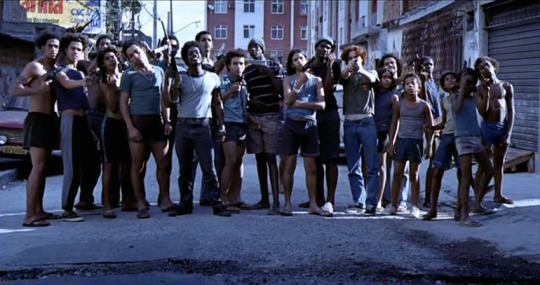
Cidade De Deus (2002)
“Why return to the City of God, where God forgets about you?”
Let’s start from the title, which is certainly enigmatic. Calling city of God, a suburb that is the scenario of a reality abandoned by God is not a mistake, nor is the frequent recourse to religious faith seen as the only motivation, the last hope of these young men for a better life, that does not lead them in a coffin before the age of twenty. I am in favor of full religious freedom and belief, but I cannot fail to notice how, if faith can lead to extremism, bigotry and fanaticism, very often it is also the only light of those who have already touched the bottom or are about to do it.
Speaking of the plot, the film begins in medias res, in the Cidade de Deus, one of the most dangerous favelas in all of Brazil.
The initial scene, so frenetic and almost surreal, is part of the history of cinema, with the chicken running away through the alleys of the neighborhood, while at least twenty boys chase her, trying to catch her with guns and rifles, as if it were Pablo Escobar reincarnated.
The chicken finally ends up clashing with our narrator, aspiring photographer, now stuck between the street gang and the police.
Masterfully we see the camera rotating around this boy, over and over again soon becoming an hypnotic rhythm, while at the end of the last turn we find ourselves in another time space, in the 60s, accompanied by the phrase A PHOTO COULD HAVE CHANGED MY LIFE, BUT IN THE CITY OF GOD IF YOU ESCAPE YOU ARE DONE, AND IF YOU STAY YOU ARE DONE, IT HAS ALWAYS BEEN SO, SINCE I WAS A CHILD.
The protagonist, faced with such a difficult choice, returns to the past with his mind and begins to tell us about a naive gang of thieves in order to narrate with their story, also the reality of the favela, which, using the the film’s wording, is too far from the idea of a Rio’s postcard that the government wanted to portrait at the time.
After a series of episodes that I don't want to spoil, we will move on to the next decade. This initially will seem like a positive turn and then will turn out to be only a patination of the neighborhood, which in the end is even more socially structured and cruel than how it used to be.
Finally, let’s move to the strongest part of the film, the children. They are the ones who make the choices that will most mark them.
In the city of God you cannot live your childhood with carefree, you must immediately decide which side to stand on, and this childish decision, you will take to your grave.
Among the children there are those who immediately think of themselves as an outsider in that climate of crime and violence, but according to them, not because of a sense of morality,but simply because they’re afraid of getting a bullet.
Then we find those who were born for it, and even plan for new robberies, who feels strong and great showing off a gun often bigger than their head.
To say that the film offers us several times the philosophical doubt of WHO ARE GOOD ONE AND WHO’S THE BAD would be redundant and perhaps too direct even to be discussed, with the police who often behave worse than the bandits, and the only “non silent” citizen is the one acting the most violent crime, so I want to focus on other points.
Can you choose which side to fight for or are you facing a one-way street? And then, badness, evil and violence are innate or you learn them, you discover them with living?
Answering the first question, the most objective and direct of the two, there is certainly no doubt that in such ill-famed neighborhoods, it is the crime that pursues us and not the other way around. When you are so abandoned by institutions and authorities, often even with a lack of reference figures from which to take example, Crime is not a choice, simply because there are no choices, it is the only option, even if unjustly glorified.
About the second question, on the other hand, in my opinion, the evil is innate, but not because it is to be considered hereditary, more because but it is part of the human nature, of the animal part in each of us, which, unfortunately, is not held back by human intelligence, but brought to extreme sadism from this intellectual capacity which other animal species lack.
It is morality that then represses these instincts, but if we left the world to anarchy, only a few would stop, and as Plautus says, Homo homini lupus.
To better explain my thoughts, I must refer to another masterful work.
I'm talking about Dogville by the controversial but brilliant Lars Von Trier. I won't talk about this film, but just to summarize the idea, we are faced with a town where cruelty is so eradicated in the population that it is a same child who starts the cycle of violence and abuse. This episode perfectly reflects how human’s evilness is, in my opinion as much as that of the director, genetic, and that can also be seen in City of God.
The undisputed head of the city, Ze Pequeno, begins his rise to power at the age of eighteen, as soon as he realizes that he wants to become the absolute king of the favela.
But if we were to talk about his desire for blood, that was born much earlier, when he was still a child and, as the narrator tells us, "he wanted to act out his whim of killing" and then took advantage of the robbery at the motel to make a massacre.
Certainly the number of its victims grows with its age and so its desire for power but, however questionable this choice is, it was not homicide for futile reasons. In fact, he decides to exterminate all the main drug dealers in the area with the intention of becoming the only owner, when he begins to understand that it was necessary to switch to the drugs field.
What makes me reflects is that, although the character will always be easily triggered, and it is not uncommon for them to put a hole in someone’s head, the reason why he killed as a child was not even money, it was just an innate desire to kill, to take the life of another human being and watch him take his last breath.
His disturbing laugh proves it.
Even the punishment, albeit excessive, that will lead him to death, inflicted on children who had robbed a rotisserie, is still part of his plan to be the owner of a favelas that respects him because in good or bad it is he who protects the city.
And it is precisely in that scene that we see how the cycle begins again, when Ze Pequeno forces a child to kill another child, or when those same children make up any type of story just to receive a weapon or the same one who will then take control of the city at the end of the film, probably taking the man they killed as an example.
They are always the victims and executioners, as well as the heart of the story. Of course, in the seventies we see the protagonists grown up, but of adult men they only have the appearance.
Their character is still that of the decade before, as well as their choices and behaviors. One of them was marked by the sight of a camera as a child and this became his greatest passion as a teenager and then an adult. The same one, despite knowing who his brother's killer is, decides not to take revenge in order to respect the choices he made years before, that is, to abstain from evil.
I don't even need to dwell on the exceptional and impeccable shots because, although there are unforgettable scenes such as the death of Benny between the screams and the intermittent lights of the disco, each shot would have to be studied and likely more than that, the transitions between one and the other.
The plot remains a rhythmical crescendo, we never get bored and the story remains in evolution: we don't have a real incipit, a problem that upsets the balance, a resolution of the problem and then a conclusion, it is a story that it follows changes without actually being a real beginning and end, just like a cycle.
Another and final theme is the power of art, the only means of escape from such a difficult reality, but art itself can often be used improperly to advertise and almost glorify this underworld. In this case we are talking about photography, but it could be any type of art from poetry, cinema to music.
The film must be said that it has no clear defects, but if I could have put my own I would have made the symbol of the camera even more important, since mainly we see it in the very first scene and in the change of decade, and then obviously for the whole last half an hour, while I would have made each photograph part of a chapter of the story, which did not happen.
All in all, I went too far and if you still didn't get the message, run to discover this masterpiece of cinema.
18 notes
·
View notes
Text


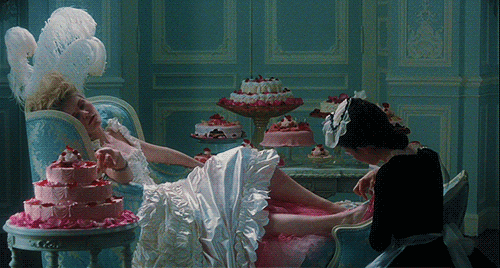

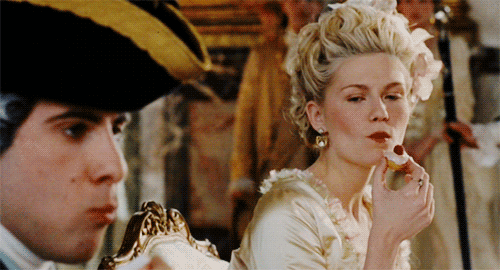

Two of my favorite movies in terms of aesthetics
Marie Antoinette (2006) by Sofia Coppola
And
Emma (2020) by Autumn de Wilde
I do find these two films to be complementary, even though they're opposite in nature.
Marie Antoinette is a melancholic drama with an impeccable sense of fashion and glamour, while Emma is a tasteful and quirky comedy that perfectly chatches the book sarcastic tone.
Marie Antoinette is a macaron, Emma is a Victoria Sponge.
Also, funnily enough, I'm not the biggest fan of Sofia's works, and I don't even like Jane Austen books, even though I recognized the importance they had and still hold, especially for women authors, but I'm more of a Woolf fan in that department.
But these movies, damn, it's such a pleasure to watch them. So colourful and tasteful.
A real org*sm for the eyes.
Every dress, interior, every accessory, hat, gloves, desserts...
Emma is going to be a cult ok aesthetic pleasing pages and blogs, much like its big sister Marie Antoinette.
#marie antoinette#marie antoinette 2006#sofia coppola#sofia coppola marie antoinette#Autumn de Wilde#kristen dunst#emma#emma 2020#emma jane austen#jane austen#anya taylor joy
167 notes
·
View notes
Text
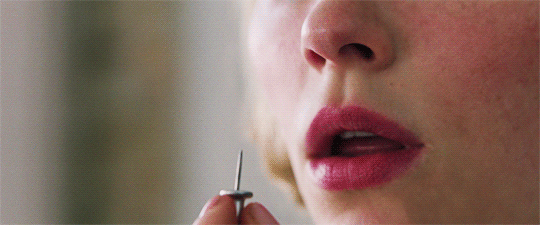
Swallow (2019)
What would you do just to feel control over your body again?
Swallow is a delicate yet intriguing movie, that captives you with its soft pastel palette and elegant manners.
But it's also a controversial movie and especially one with a controversial ending, where the happy finale of the protagonist is her ab*ortion, which could be seen provocative in a sense.
I do believe that the film last swallowing was the most important, the one that Hunter was longing for since she discover her pregnancy.
As her belly grew, her vitality was dying and this was beautifully shown by her change of clothing and makeup, which both became more dull as the movie went on.
I see the feminist intent in the writing, the main character finally taking charge of her own body throughout the movie by hurting herself, even though it was done, in my opinion, a little bit shallowing.
I guess the intent was for us to side with the protagonist, but i cannot side with someone who brought the issue upon themselves.
I like how she grew more aware of her own self towards the end of the movie, but that's it. I didn't even feel empathy towards her
The protagonist wasn't oppressed at first, she started to be only once she put her own self and the baby in danger. She was definitely a trophy wife of some sort but she also didn't do anything to change that. She didn't have friends, hobbies (except for painting which she abandoned) or a work that could occupy her day. Instead she was at home, playing dress up like the perfect doll she was inspiring to be. Based on the movie it seems like her condition started more because of boredom than an actual cry of help.
Her husband turned out to be an a*shole when she escaped at the motel but he wasn't that bad before.
The scene where he asks her what she wanted him to buy her, could easily represent the fact that he grew in a rich family and gifts, material things are the only way he knows how to show love and caring.
In the end, I do recommend this movie especially for Haley's acting and her perfect wardrobe, but it's not a masterpiece or anything of that sort. It's a nice meringue. Could have been done better
31 notes
·
View notes
Text

Dolor y Gloria (2019)
“The nights that coincide several pains, those nights I believe in God and I pray to him. The days when I only suffer a type of pain I'm an atheist.”
Life, pain, sadness, love and success meet art.
Or is it because it's art that copies everyday life? Movies, books, stories, songs, they're all talking about us, about life, about either our PAIN or our GLORY, and many times they come hand in hand.
Glory doesn't save us, and pain doesn't kill us
We will all experience them, in different mixtures and portions, as the gods above wish, but EACH ONE OF US will have their success and their failures, their happiness and their tears.
9 notes
·
View notes
Text
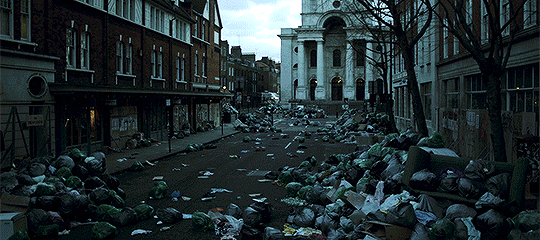
Contagion (2011)
"The average person touches their face two or three thousand times a day…three to five times every minute. In between that we're touching doorknobs, water fountains, and each other."
I wish I could talk about this theme and this film as an ordinary artistic project, which made me feel emotions, which surprised or bored me for better or for worse.
But no, the theme is pandemics and, to say that it is not the most recurrent and used argument by all of us now, I would lie to you and to myself too in the first place.
Pandemics have always been at the heart of tragedies, stories and legends that have resulted in folklore, and it is not surprising that Cinema often uses them as the protagonist of subjects and screenplays.
What happens, however, is that this subject is adapted too blatantly and far from reality, and this very often implies that the chained events resulting from the initial problem (the pandemic) end up shifting the focal point in a completely different direction.
This does not happen in Contagion, a 2011 film, directed by Steven Soderbergh, evidently inspired by SARS. In Contagion everything has its own logic, everything is realistic and well structured, and this can unfortunately be confirmed by each of us, since our life is now become the reality told in the film.
To briefly summarize the plot without spoiling too much, we have more parallel stories of different characters who in one way or another, have to fight against a worldwide virus and the consequences created by it.
However, it all starts with a doctor, Beth Emhoff, played by Gwyneth Paltrow, who, returning from a business trip in Hong Kong, suddenly dies of an unknown disease, and with her several people on the planet will soon have the their own sad fate in the same mysterious circumstances. This virus, simultaneously a swine and bat infection, spreads rapidly in the local population to become global.
The strong point of the film, besides the great truthfulness and lack of theatricality in it, in my opinion, lies on the fact that the story begins in medias res, from DAY TWO of the contagion, and not from the beginning of this, which is left for editing the final.
I liked this narrative choice mainly for two reasons:
First of all, because we remain until the last scene with the doubt as to what the correct thesis may be, among all that of an international conspiracy for example, but I just want to anticipate that sometimes the reality of the facts is more simple and mocking than we expect.
Second thing, because as it is happening now, really knowing how that virus got to patient 0 is in fact useless in the face of millions of deaths, now the problem has advanced, now we have to solve it, we will think about the events development later.
Not that discovering the origin of the virus can not be useful both to study it and to foresee further contagions, but KNOWING EXACTLY ALL THE DETAILS OF HOW THE PATIENT HAS CONTRACTED it, will not help save anyone from certain death, it could at best just be misunderstood by the media.
As for the photography, it is very cold, static, almost like a documentary. Sometimes everything seems very sterile, empty, but I think it was the desired atmosphere.
The final scene is certainly the strongest, despite being a simple series of images, but which finally reveals the mystery. This becomes even more powerful precisely because it is positioned immediately after the moments that had foreshadowed how the world eventually rises and, although wounded, returns to a meager normalcy, represented by the prom dance.
Obviously there is no shortage of obvious characters as if they were pre-packaged, from the paladin doctor who dies due to social commitment (Kate Winslet), to the blogger played by Jude Law thirsty for fame and money who, at the expense of his frightened and ignorant followers, makes money on their naivety.
But I must admit that even these details do not make the vision less pleasant, on the contrary, perhaps they strengthen it because even if you clearly see how cinematic prototypes are, it is not difficult to find assonances even in our world.
Just think of the Chinese doctor Li Wenliang, the first one to raise the alarm of the virus which then died because of his altruism, or those people who, like the character of Jude Law, seriously believe that an essential oil can be an effective CURE instead of a proven medicine .
This almost prophetic film is probably not the best antidote to the desire of escape that afflicts us lately, so I would not recommend it if you're just looking to relax from the continuous macabre news, but if you are curious to see a preview of the dozens of films and documentaries that will be produced in the years ahead on this matter, then watch it as soon as possible.
Know that unconsciously, being on the sofa in your pajamas, you are writing the subject of a multiple-award-winning screenplay, and perhaps feeling that we deserve a bit of an Oscar would not hurt anyone's psyche.
#steven soderbergh#contagion#covid#covid2019#covid19#contagion 2011#gwyneth paltrow#matt damon#kate winslet#jude law#marion cotillard#laurence fishburne
8 notes
·
View notes
Text
I'm always fascinated at other peoples' interpretation of movies I love, it just further shows how intriguing they are.

Dogville (2003)
“If there is any town this world would be better without, this is it”
This movie is nearly three hours long. And I wasn’t even planning on watching it. But I watched the first ten minutes, and they turned into half an hour, and the first hour was gone, and so the others.
This movie proves the same ugly truth I’m also aware of: human kind is selfish, human kind is not meant to do good, it’s in its nature to be mean, cruel, evil. Grace saw that. Grace experienced that.
Dogville’s citizens tried to do good, but it’s not in their blood, it goes against their will. And even more enlightening is the fact that a kid started the abuse, as in telling us that even kids are evil, that is not only our education but in our dna to take advantage on somebody else. It makes us feel good.
And in the end, hate always creates more hate, and even the most compassionate of creatures realizes she’s not good enough for forgiveness. They don’t deserve forgiveness.
But I’m telling you, you’ll find so much joy in the last sequences.
Von Trier is once again a genius, many times misunderstood. He might be an a*shole, but damn if he isn’t one of the best storyteller
16 notes
·
View notes
Text
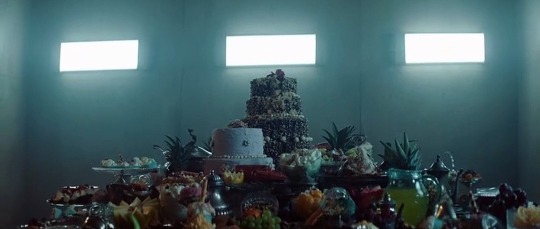
El hoyo (2019)
"The message needs no carrier" (spoiler: it actually does)
"There are 3 kinds of people; the ones above, the ones below, and the ones who fall. "
I've just watched this small masterpieces and here's my own interpretation.
Obviously the whole movie is a big metaphor. Both an analogy about our society and one about the Afterlife are present.
First of all, in my view, the place they're kept into is like a Purgatory between heaven and hell. The protagonist entered there voluntary because after the six months trial he would have expiated his sins and would finally be ready to enter Heaven. The old man is an accidental killer, therefore he doesn't deserve Hell, but definitely can't go into Heaven either, and his punishment is longer than Goreng's because he did in fact end a life.
Also Goreng is referenced multiples times as the Messiah, and his travel towards this purge tower is quite similar to Dante's one.
Each prisoner wakes up the first day of the month in a different position, which represents our birth. Some are born in better environments, families and countries and all of it is just luck, fate.
Then, since everyone knows that each of higher floors will likely take advantage of their position, our selfishness takes the best of us.
The higher floors know that the lower ones will literally eat their leftovers, while the ones under know that they better take as much as they can, otherwise they won't be able to survive. There's no altruism or generosity in the society.
You're placed high, you sh*t on who's below. You're below, you dream to reach above.
Each of the characters represents something.
The first roommate, the old man, is someone who's very aware of their surrounding, who's tired of fighting and knows very well how the world works because he's been in a better as much as a worse situation.
The lady coming from the Administration is a middle class representative, trying to change the world but also completely unaware of what's happening right under her nose.
The fact that she keeps on saying that a baby cannot be there and there are 200 floors is just further proof that we blindly lie to ourselves that things can't be that bad, that the world isn't that evil and the rules are respect, being delusional of course, to help us sleep at night. That's why when she hits lower than what she was told was possible, she killed herself.
She's also a vegetarian, with a big love for animals. She obviously represents both an activist that is trying to tell others that they shouldn't eat more than they need, because that means that who's lower won't have anything left, which is such a big innuendo to climate change, but at the same time she's also a privileged person who's never been lower than a certain point and thinks that anyone can easily "just eat less" without caring about other's issues (it reminded me of some vegans who cannot accept that veganism is not accessible or sustainable for the majority of the would population)
The last roommate, the one with the rope represents a religious person, who endures the hardship without giving up because of his faith.
Another pragmatic sequence in my opinion was the one where the two, while descending the tower, met an ill man with a companion with the Down Syndrome (I'm sorry if I'm sounding insensitive is just that I don't know how else to better describe the scene to make it recognizable to you) who said that he will proceed to suffocate his cellmate to also eat what went into his stomach even while being no more hungry himself, I mean, can you better descrive greed than this sentence?
Now, coming to the final scene, which left many of the viewers disappoint or confused, here's my idea.
The deranged girl who claims to have a daughter is definitely crazy, but not completely gone. I do believe there is a baby there, and the Administration is probability unaware of that because there's someone higher than them, and they're being lied to, also. But I don't think the protagonist actually saw the little girl.
I think that he reached such a place of histeria that he convinced himself that the baby was alive, hallucinating, to have a last strand of hope as he was dying. Notice how the baby is perfectly clean and well nourished, that would be impossible. The little girl is long gone and dead God knows in which floor but he convinced himself that he saw her as a way of also hoping that some kind of humanity is still left, that they wouldn't kill and eat an innocent and innocuous creature. But that's not the case.
Notice how he reaches the 333th floor and then walks like he doesn't even have a scar. Now multiply that number for each room residents, which are two. He's dead and has now reached Hell. There he finds his first roommate who's also in Hell since they both damned themselves letting their selfishness take over. The lady is obviously absent, since she never hurt a thing or specifically ate someone's flesh.
The baby was all part of his imagination and she doesn't reach the 0 level, simply because she was never there in the first place.
The girl could have been the message if she reached the top, since it would have proven how flawed the system is, but she never will. Some people claimed that it is not possible to reach the top because of how fast the platform goes, that it will just crash on the ceiling. I do not agree. There's no point in letting the platform crash each time so it will probably slow down enough to reach level 0, in facts we don't even know how tall level 1 is.
Someone also claimed that it's impossible that no one else ever reached the top through this method, which means to go all the way down to then come back up. First of all, it could have happened and that person could have been sent back down, but what I find most reasonable is that no one knows how deep the hole is, probably up to hell, and no one is brave enough to do it because no matter how bad your situation is, you're still afraid of having it worse. It's a suicidal mission which led to crazyness and then death even our brave characters.
Another reference I've loved is when it's mentioned that usually the poorest kill each other's to survive, while the richest have the highest rate of suicide. Why is that? Easy, they have nothing to endure, to live for, they have everything, they're not longing for the hope of food plus there's frightening in knowing that the next month it can only worsen.
So now the question remains: What is the ending then if the baby doesn't reach the top? The finale guys was right in front of our eyes, around the middle of the movie. Remember when the chef complains to other cooks about the hair in the pannacotta? That's the real ending: the pannacotta reaches the top (further proof that the platform won't crash) as the message but instead of being interpreted as a statement of insurrection, the level 0 workers believe it was sent back because there was a hair in there. This is the ultimate slap in the face, the final proof that those people are so out of touch, so blind towards what's happening downstairs that they think that was the issue, the hair in the pannacotta, without realizing that people are literally eating each others down there.
So, there was actually a satisfying finale which gave us answers, it's just that the finale was not at the end as usual.
#el hoyo#netflix#the platform#il buco#el hoyo Netflix#the platform Netflix#the platform netflix review
416 notes
·
View notes